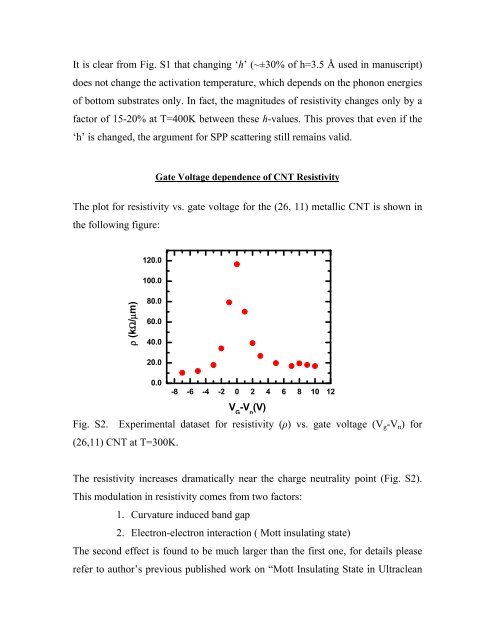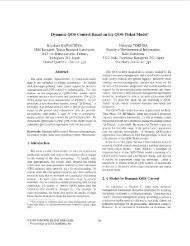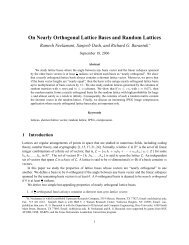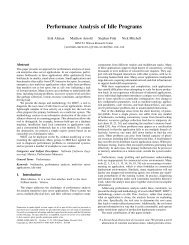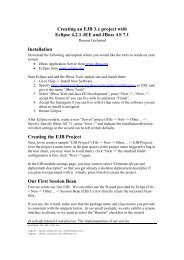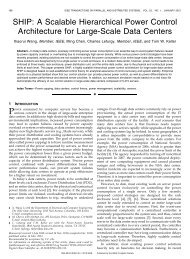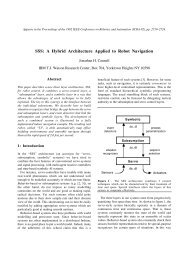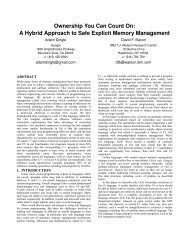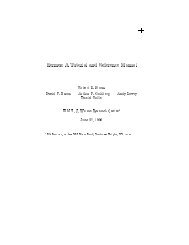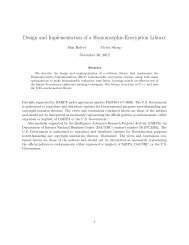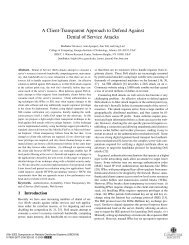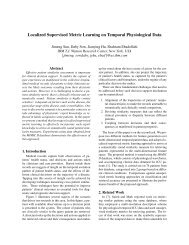Low Bias Electron Scattering in Structure ... - Researcher - IBM
Low Bias Electron Scattering in Structure ... - Researcher - IBM
Low Bias Electron Scattering in Structure ... - Researcher - IBM
You also want an ePaper? Increase the reach of your titles
YUMPU automatically turns print PDFs into web optimized ePapers that Google loves.
It is clear from Fig. S1 that chang<strong>in</strong>g ‘h’ (~±30% of h=3.5 Å used <strong>in</strong> manuscript)<br />
does not change the activation temperature, which depends on the phonon energies<br />
of bottom substrates only. In fact, the magnitudes of resistivity changes only by a<br />
factor of 15-20% at T=400K between these h-values. This proves that even if the<br />
‘h’ is changed, the argument for SPP scatter<strong>in</strong>g still rema<strong>in</strong>s valid.<br />
Gate Voltage dependence of CNT Resistivity<br />
The plot for resistivity vs. gate voltage for the (26, 11) metallic CNT is shown <strong>in</strong><br />
the follow<strong>in</strong>g figure:<br />
120.0<br />
100.0<br />
ρ (kΩ/μm)<br />
80.0<br />
60.0<br />
40.0<br />
20.0<br />
0.0<br />
-8 -6 -4 -2 0 2 4 6 8 10 12<br />
V G<br />
-V n<br />
(V)<br />
Fig. S2. Experimental dataset for resistivity (ρ) vs. gate voltage (V g -V n ) for<br />
(26,11) CNT at T=300K.<br />
The resistivity <strong>in</strong>creases dramatically near the charge neutrality po<strong>in</strong>t (Fig. S2).<br />
This modulation <strong>in</strong> resistivity comes from two factors:<br />
1. Curvature <strong>in</strong>duced band gap<br />
2. <strong>Electron</strong>-electron <strong>in</strong>teraction ( Mott <strong>in</strong>sulat<strong>in</strong>g state)<br />
The second effect is found to be much larger than the first one, for details please<br />
refer to author’s previous published work on “Mott Insulat<strong>in</strong>g State <strong>in</strong> Ultraclean


